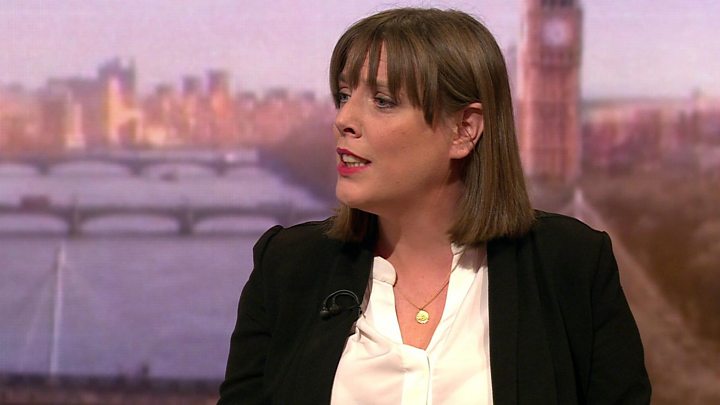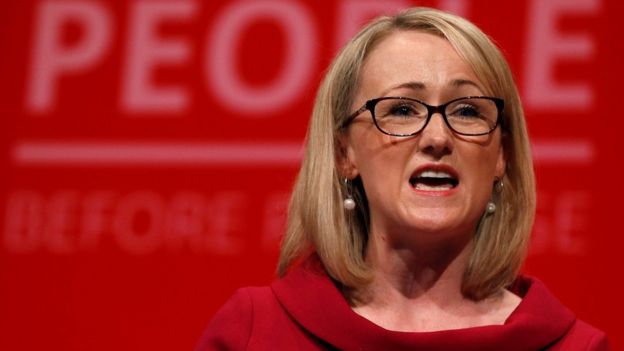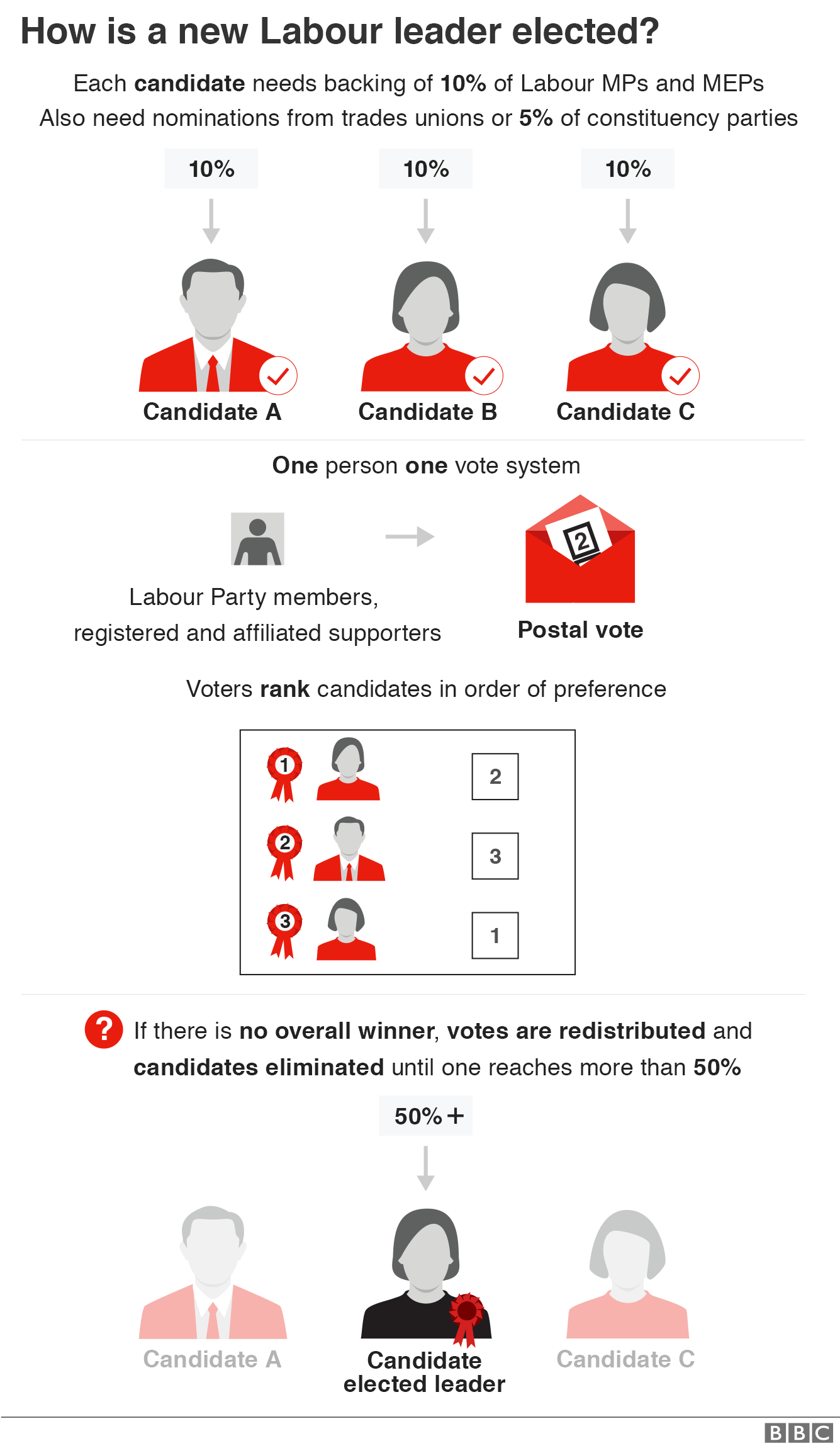WillWeEverBeGoodAgain
Johnny nice-tits
My last post for a bit, apt it should be in this thread. Have a good new year ladies and i will see you all on the other side.
All the very best in China me old China
My last post for a bit, apt it should be in this thread. Have a good new year ladies and i will see you all on the other side.





WTF is all this "overloaded manifesto" flimflam?Candidates hoping to succeed Jeremy Corbyn as Labour leader have questioned the party's manifesto choices while opening up dividing lines on Brexit.
Sir Keir Starmer said its election offer was "over-loaded" while both Lisa Nandy and Jess Phillips said voters did not trust its free broadband pledge.
Ms Phillips also said she would not rule out rejoining the EU if Brexit turned out not to be a success.
She said she would not change her view that the UK was "better off" in the EU.
Sir Keir and shadow foreign secretary Emily Thornberry - both strong supporters of another referendum before the election - said Labour's focus as an opposition should now be on ensuring Boris Johnson negotiated the best economic and trade partnership with the EU.
Five candidates, also including Clive Lewis, have so far entered the race to succeed Jeremy Corbyn.
Labour's ruling body is due to meet on Monday to decide the timetable for the election. Would-be candidates have to be nominated by more than 20 MPs and must also get the backing of at least 5% of constituency parties or three affiliated bodies - two of which must be trade unions.
- Who will be Labour's next leader?
- Labour contest timings could be crucial
- Keir Starmer enters Labour leadership contest
Shadow business secretary Rebecca Long-Bailey is also expected to officially declare her candidacy in the coming days.
The contest was called after Mr Corbyn announced he would stand down as leader after Labour's heavy election defeat.
Both Sir Keir and Ms Phillips told the BBC's Andrew Marr the party must learn the lessons of the defeat and why some many previously rock-solid Labour seats in the Midlands and the North of England turned to the Conservatives.

Media captionJess Phillips: "The country didn't trust us to govern"
Sir Keir said the manifesto was one of a number of "cumulative" factors that eroded trust, on top of concerns over the party's Brexit policy, its leadership and its record on tackling anti-Semitism.
"There was a general feeling the manifesto was over-loaded. We lost the public's trust in the Labour Party as a force for good and a force for change," he said. "After four general election losses we have to address that straight away."
But he warned Labour against "unpicking" the last manifesto when it should be focused on its offer to voters in five years time. He also said it would be wrong to "retreat" from Mr Corbyn's focus on reducing inequality and protecting the public services.
While not the sole reason for its defeat, Ms Phillips also identified the manifesto - which pledged to bring rail, mail, water and energy into public ownership and extend the role of the state into new areas - as one of Labour's weak points.
"The fundamental thing is that the country did not trust us to govern," she said. "They did not trust to deliver on the things we were saying."
Image copyrightREUTERS
Image captionRebecca Long-Bailey is expected to join the race
While there was a strong case for nationalising the railways and ending private involvement in the prison and probation services, she suggested tackling deep-seated social problems, such as homelessness and social care, were more important than public control of key utilities.
"We lost them on some of the basics. My son does not go to school five days a week. Lots of people in the country can give you their own example. While that was the case, offering free broadband was just not believable."
The Birmingham Yardley MP said the party must stop obsessing with factionalism and internal positioning and speak honestly to people.
- Lisa Nandy joins Labour leadership race
- Jess Phillips joins Labour leadership race
- Thornberry enters Labour leadership race
- Clive Lewis joins Labour leadership race
"People have to feel a connection with us again. People have to feel we are on their side."
Ms Nandy also distanced herself from the broadband pledge, telling BBC Radio 5 Live's Pienaar's Politics: "People said to us, 'It's all very well promising free broadband but can you sort out the buses?' and that was the more pressing issue in their lives. It's not about whether you're radical or not it's about whether you're relevant."
Brexit
Ms Thornberry said Labour had been wrong to allow the Conservatives to fight the election on the "single issue" of Brexit.
She told Sky News that the opposition's focus should now be on ensuring the UK had a relationship with Europe in the coming years that's "going to work for jobs and the economy".
Sir Keir, who like Ms Thornberry was a supporter of another referendum, suggested the issue of EU membership was now closed and the party needed to move on from an argument between Remain and Leave.
Asked whether she would support, as leader, the UK going back into the EU, Ms Phillips said it was sensible to "wait and see".
"If we are living in an absolute paradise of trade and totally safe in the world...then maybe I will be proven wrong. But if the reality is if if our country is safer and more economically viable to be in the EU, I will fight for that regardless of how difficult that argument is to make."



The candidates have also been pressed on the UK's relationship with the US following the killing of Iran's top military leader, Qasem Soleimani, in Iraq.
Ms Phillips said people were "not shedding any tears" over the Iranian general's death and, while she opposed the Iraq War, she would always support the deployment of British forces abroad if there was a "moral case" for it.
"What we have to make sure is that when we take action, it is lawful, proportionate and there is a moral case for it. If those questions can be answered, then I would absolutely take action to protect British lives."
However, Sir Keir said the UK should never find itself in the position of "blindly following the Americans".
If he became prime minister, he said he would pass legislation to circumscribe the ability of governments to take military action. He suggested it would have to pass three tests - if it was lawful, had been supported by Parliament and was part of a viable plan.
Unions are irrelevant to me - there isn't a single unionised member of my workforce.Your double think is amazing. On the one hand, you declare that Labour are so incompetent that they have no hope of achieving power, but on the other hannd the rabid anti Labour rhetoric betrays you. You have form when it comes to this. Yous state that unions are irrelevant, yet at the same time want even further restrictions on their activity. if Labour and the unions are so irrelevant, why do you agitate against them so much? Surely neither should pose any great threat to you self interest. Sorry Scara your petty coat is showing...again!
Collective bargaining is the natural counterbalance to government overreach.The fact unions have such control over a party is mental.
Unions benefit their members but hurt consumers generally, and especially workers who are denied job opportunities. Unions decrease the number of jobs available in the economy.
There's no need at all for collective bargaining.Collective bargaining is the natural counterbalance to government overreach.
Like them or hate them, they are necessary. Like trident is necessary.
It would be better if neither needed to exist. But there are too many dingdongheads in power for them not to.
I am very uncomfortable how intertwined they are in labour however. Conversely, I'm uncomfortable how big business keeps the Tories afloat
This genuinely left me speechless.There's no need at all for collective bargaining.
If terms are not good enough, employers won't be able to find employees.
No individual (unless supremely talented) can change the practices of a business but market forces will do precisely what collective bargaining does but in a fair manner and without the thuggery.This genuinely left me speechless.
Its It's really basic economics to know this isn't true and that in a competitive market both parties are price takers.
The fact unions have such control over a party is mental.
Unions benefit their members but hurt consumers generally, and especially workers who are denied job opportunities. Unions decrease the number of jobs available in the economy.
They don't - they don't even get a vote in leadership elections.But it's quite okay for big corporations to run the Tory party... more double think and double standards.
Actually it's the RussiansBut it's quite okay for big corporations to run the Tory party... more double think and double standards.
They don't - they don't even get a vote in leadership elections.
Where did anyone explicitly state its ok for corporations to run the Tory party?
Nearest mention was actually the opposite "Conversely, I'm uncomfortable how big business keeps the Tories afloat".
But do crack on talking to yourself, dont let the actual conversation get in the way of your rhetoric.
We use essential cookies to make this site work, and optional cookies to enhance your experience.
